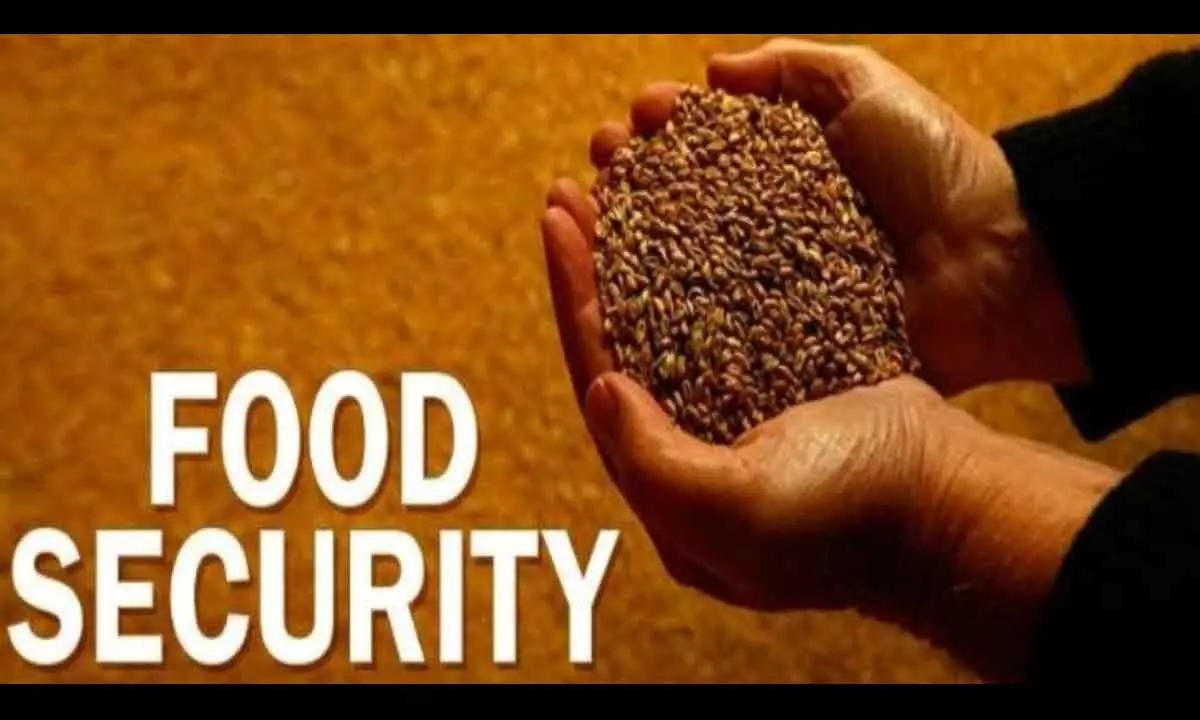India for fixing gaps in food security
India urges WTO members to start text-based negotiations for finding permanent solution to public food stockholding
image for illustrative purpose

Under text-based negotiations in WTO, an agreement is finalised around draft texts floated by the chair of a particular committee dealing with the subject
Key Takeaways
♦ EU offered a positive response to the chair’s textual suggestions
♦ Draft is based on discussions amongst the member countries
♦ Issue of finding permanent solution public stockholding is important for developing countries
♦ Developed countries term these support measures as trade distorting subsidies
India has urged WTO members to start text-based negotiations from this month on finding a permanent solution to the issue of public stockholding for food security purposes, an official has said.
The official added that the European Union (EU) is ready for talks with India on the stockholding issue. The issue came up for discussion at an agriculture negotiations meeting on October 2 in Geneva. It was chaired by Ambassador Alparslan Acarsoy of Turkiye. At that meeting, the EU offered a positive response to the chair's textual suggestions related to the safeguards mechanism aimed at preventing illegitimate exports stemming from excessive food stocks, the official said. The Geneva-based trade official also said that the EU explicitly recognized that the safeguards and anti-circumvention are indeed the key provisions which deal with the possible impact of public stockholding policies. “India urged members to commence text-based negotiations as soon as possible, preferably at the senior official level meeting scheduled for late October,” the official said.
Under text-based negotiations in WTO, an agreement is finalised around draft texts floated by the chair of a particular committee dealing with the subject. The draft is based on discussions amongst the member countries and is fine-tuned till all the nations are in agreement with it. India reiterated the importance of discussing external reference prices to accurately assess farm support in relation to public stockholding. The issue of finding a permanent solution to the public stockholding programmes for food security purposes is important for developing countries like India as it provides support measures and procures rice from farmers at MSP (minimum support price) and sells at cheaper rates to poor populations for food security. Developed countries term these support measures as trade distorting subsidies and they are against these programmes of public stockholding of food. According to them, this procurement violates the prescribed limit of providing subsidies and WTO's agreement on agriculture.
They also demand notification to WTO (World Trade Organization) by emerging economies about their programmes. Developing economies like India are of the view that there is a need to change the way this subsidy limit is calculated. They also demand a significant cut of subsidies being given to farmers of developed countries. India has pitched for the need to recalculate the external reference prices to reflect the impact of inflation and other economic factors on food stock prices. In 2013, it was agreed by the WTO members to find a permanent solution to these issues and till then there is a “peace clause” under which no country would file any legal complaint against another member even if the 10 per cent level is breached. As part of a permanent solution, India has asked for things like amendments in the formula to calculate the food subsidy cap and inclusion of programmes implemented after 2013 under the ambit of 'Peace Clause'.
At the agriculture negotiations meeting on October 2, the chair asked members to consider several proposed safeguards and anti-circumvention provisions as potential breakthroughs for the highly debated permanent solution for public stockholding. “This topic of public stockholding is crucial for achieving an outcome on agriculture at the next ministerial conference in February 2024.

